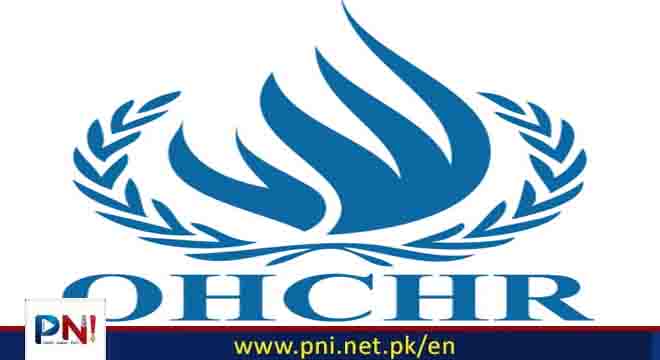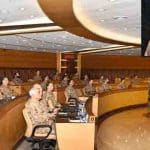UNITED NATIONS, Dec 06 : The UN human rights office, OHCHR, has condemned a new ban imposed by the Taliban in Afghanistan preventing women and girls from attending private medical institutions, warning that it will have devastating consequences for healthcare – especially the future availability of midwives and nurses.
Thursday’s Taliban action removed the last remaining opportunity for women to pursue higher education.
OHCHR Spokesperson Ravina Shamdasani described the new directive, which reportedly took effect on Tuesday, as “yet another direct blow” by the de facto authorities against Afghan women and girls.
“It is profoundly discriminatory, short-sighted and puts the lives of women and girls at risk in multiple ways.”
Afghanistan already suffers from one of the highest maternal mortality rates in the world and there are deep concerns that that the ban would further erode women’s precarious access to healthcare.
It will also prevent a new generation of nurses and midwives from receiving training.
Under Taliban rules, male medical staff are prohibited from treating women unless accompanied by a male relative, making the presence of female healthcare workers critical.
Meanwhile, two of Afghanistan’s top cricket stars — Rashid Khan and Mohammad Nabi — have called on the Taliban to reverse a decision to bar women from education and medicine, terming the move “deeply unjust”.
In her comments, Ms. Shamdasani also noted that the new directive not only blocks the remaining path for Afghan women to pursue higher education but also undermines the country’s overall healthcare system.
Urging the Taliban authorities to repeal the harmful directive, she stressed: “It is high time women and girls’ human rights are ensured, in line with Afghanistan’s international human rights obligations.”
The UN Assistance Mission in Afghanistan (UNAMA) also expressed deep concerns over the directive, stating that, it posed “further restrictions” on women and girls’ rights to education and access to healthcare.
“Ultimately, it will have a detrimental impact on Afghanistan’s healthcare system and on the country’s development,” the Mission said in a statement.
Richard Bennett, the UN Special Rapporteur – or independent expert – on the situation of human rights in Afghanistan, described the ban as “inexplicable and unjustifiable.”
“[It will] have devastating impact on entire population if implemented and must be reversed,” he said in a post on the social media platform X.
In his post on X, Afghanistan’s T20 Caption Rashid Khan said, “Education holds a central place in Islamic teachings, emphasizing the pursuit of knowledge for both men and women. The (holy) Quran highlights the importance of learning and acknowledges the equal spiritual worth of both genders.”
A few hours after Rashid’s outpouring of concern and support, former Captain Mohammad Nabi, too, raised the issue on X.
“The Taliban’s decision to ban girls from studying medicine is not only heartbreaking but deeply unjust,” Nabi wrote.
Follow the PNI Facebook page for the latest news and updates.









